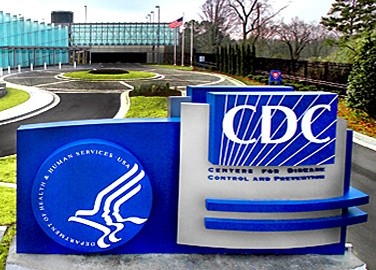CDC Issues Advisory Over Carbon Monoxide Poisoning
The Centers for Disease Control and Prevention (CDC) issued a warning on Thursday over carbon monoxide poisoning risks in the aftermath of Hurricane Laura.

After the hurricane slammed the Louisiana coast on early Thursday, the CDC issued a warning of carbon monoxide poisoning risks.
On the same day, Hurricane Laura was categorized as a powerful Category 4 storm.
The storm has knocked out power to thousands of homes and businesses that led to power outages. This means that people turn to some alternatives to provide temporary power.
According to CDC, the power outages turned people to "alternate power sources such as gasoline generators and may use propane or charcoal grills for cooking."
"If used or placed improperly, these sources can lead to CO build up inside buildings, garages, or campers and poison the people and animals inside," the CDC added.
The CDC advised clinicians and physicians to pay attention to people experiencing symptoms related to carbon monoxide poisoning. If this will not be given attention, this could lead to another problem that could add up to the global pandemic and aftermath of Hurricane Laura.
Carbon monoxide poisoning is variable and non-specific. Some common symptoms include headache, nausea, vomiting, dizziness, weakness, chest pain, and altered mental status.
According to a CNN News report, no fever with symptoms, a history of exposure, or multiple people with similar complaints is red flags for carbon monoxide exposure.
The agency added that those who have chronic conditions like anemia, respiratory illness, or heart disease are most at risk for carbon monoxide poisoning. Babies, pregnant women, and the elderly are also prone to poisoning due to their weak immune system.
The CDC told a media outlet that "appropriate and prompt diagnostic testing and treatment are crucial to reduce morbidity and prevent mortality from CO poisoning."
It added that "identifying and mitigating the CO source is critical in preventing other poisoning cases."
The agency also released guidelines and recommendations to clinicians and physicians on what to look for and how to treat people exposed to carbon monoxide poisoning to make sure that they are not misinformed and misled.
One of the recommendations given is after a clinician assesses a patient's symptoms and activities, "evaluation should include examination for other conditions including smoke inhalation, trauma, medical illness, or intoxication."
The advisory also includes specific treatments for carbon monoxide poisoning and other steps to take.
The CDC said that the public must be aware "that CO exposure may be ongoing for others spending time in or near the same environment as the patient." The agency asserted that these people should also be tested.
The CDC also advised clinicians to notify emergency medical services, fire departments, or law enforcement to investigate the source of the carbon monoxide.
Clinicians must also advise patient about safe practices for operating generators, grills, camp stoves, or other alternative fuel-burning devices, the agency added.
Check this out!
Subscribe to Latin Post!
Sign up for our free newsletter for the Latest coverage!

















